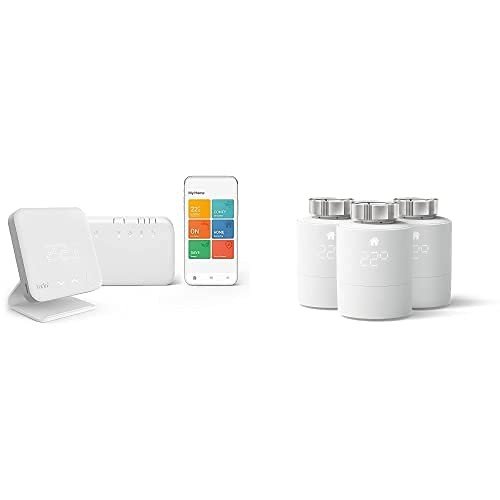15 Terms That Everyone Is In The Buy Kitchen Lighting UK Industry Should Know
A Comprehensive Guide to Buying Kitchen Lighting in the UK
When it comes to kitchen design, lighting plays an essential role in performance, looks, and general atmosphere. Selecting the best kitchen lighting can significantly enhance how you use area, impacting whatever from meal preparation to amusing visitors. With the huge range of alternatives offered in the UK, it can be intimidating to select the perfect kitchen lighting. This guide intends to simplify the process and supply valuable insights into the different kinds of kitchen lighting, elements to think about, and suggestions on making informed choices.
Kinds Of Kitchen Lighting
Understanding the various types of kitchen lighting is essential for achieving a well-lit area. Each classification serves an unique purpose and can be utilized to produce a layered lighting result.
Type of Lighting
Description
Job Lighting
Supplies focused lighting for specific tasks, such as cooking, checking out dishes, or cleaning meals.
Ambient Lighting
Deals overall illumination for the entire kitchen, normally through overhead fixtures or ceiling lights.
Accent Lighting
Emphasizes particular functions or decorative components, such as artwork, backsplashes, or architectural information.
Decorative Lighting
Includes a stylistic or visual touch, such as pendant lights and chandeliers that serve as centerpieces.
Job Lighting
Job lighting is vital for guaranteeing security and performance while preparing meals. Under-cabinet lights, for circumstances, are a popular choice as they illuminate the counter top without including shadows, making jobs simpler.
Ambient Lighting
Ambient lighting supplies a warm, inviting radiance to the kitchen. This can be attained through ceiling-mounted fixtures, recessed lighting, or chandeliers. The secret is to make sure consistent light circulation throughout the area.
Accent Lighting
Accent lighting, using fixtures like wall sconces or LED strip lights, directs attention to particular areas or functions within the kitchen. This type of lighting can be particularly effective in showcasing stunning backsplashes, cabinet designs, or decorative products.
Decorative Lighting
Decorative lighting includes character and style to a kitchen. Pendant lights above an island or a stylish chandelier can become declaration pieces, boosting the kitchen's overall design.
Aspects to Consider When Buying Kitchen Lighting
Selecting the suitable kitchen lighting involves evaluating numerous vital aspects to guarantee you make the best choices for your space.
Layout and Size of the Kitchen
- Comprehend the measurements of your kitchen and recognize crucial workspace. The layout will determine how you disperse lighting fixtures.
Performance
- Think about how you utilize the kitchen. If you often prepare or host, select job lighting. If your kitchen functions as a dining location, ambient lighting will also be essential.
Style and Aesthetics
- Make sure lighting fixtures complement the kitchen's style. Whether modern, traditional, or diverse, the design should harmonize with other elements.
Color Temperature
- Light color considerably impacts the ambiance. Pendant Lights UK (2700K-3000K) produce welcoming environments, while cooler tones (4000K-5000K) are better suited for task-oriented areas.
Energy Efficiency
- Consider LED options, as they consume less energy and have a longer life-span compared to incandescent or halogen bulbs.
Dimming Capability
- Incorporating dimmer switches permits flexibility in adjusting light intensity for various activities.
Tips for Buying Kitchen Lighting
When shopping for kitchen lighting, keep the following pointers in mind:
- Measure First: Measure the areas where you prepare to set up fixtures to ensure they fit well.
- Mix Fixtures: Combine various types of lighting for a balanced approach, mixing task, ambient, and decorative choices.
- Consider Placement: Pay attention to the height at which you install fixtures. For islands, pendants need to hang 30-36 inches above the surface.
- Determine Brightness: Look at lumens rather of watts; brighter doesn't always mean much better in regards to performance.
- Pick Quality: Investing in quality fixtures will save you cash in the long run due to resilience and minimized maintenance needs.
Frequently Asked Questions (FAQs)
1. What is the very best type of lighting for kitchen jobs?
Job lighting, such as under-cabinet lights or pendant lights over work surface areas, is ideal for kitchen tasks as it provides focused lighting.
2. How do I choose the right size of pendant lights?
A general guideline is that the size of the pendant need to be around one-third the width of the island. If your island is 4 feet broad, search for pendants that are around 12 inches in diameter.
3. Can I use a dimmer switch for all types of kitchen lights?
Not all lights are dimmable. Examine the item requirements before installation. LED lights and some fluorescent lights are more most likely to need compatible dimmer switches.
4. How can I enhance my kitchen lighting without major renovations?
Consider integrating plug-in under-cabinet lighting, stylish floor lamps, or battery-operated LED lights to enhance lighting without comprehensive modifications.
5. Is it essential to employ a professional to set up kitchen lighting?
While simple installations can be done separately, it's suggested to employ a qualified electrician for complicated setups to make sure security and performance.
Selecting the right kitchen lighting in the UK involves understanding different lighting types, examining necessary factors, and executing tactical tips. By focusing on the kitchen's design, performance, and design, house owners can produce a well-lit, inviting space that enhances everyday activities and events. Whether starting a complete renovation or an easy lighting upgrade, the right choices will light up both the kitchen and the cooking experiences shared within it.
